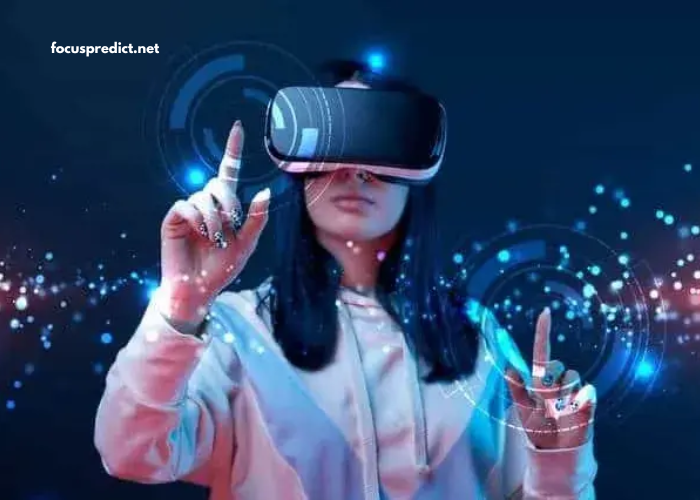As we step into 2025, the entertainment landscape continues to evolve with groundbreaking innovations, changing consumer preferences, and emerging technologies. From immersive storytelling and artificial intelligence to the rising dominance of short-form content and global content crossover—2025 is poised to redefine how we consume, create, and engage with entertainment. This year will witness an accelerated shift in trends that are both audience-driven and tech-empowered.
Let’s explore the top entertainment trends you must watch in 2025.
The Rise of AI-Generated Content
AI Becomes a Storyteller
In 2025, artificial intelligence is no longer just a tool—it’s a creator. AI-generated scripts, music compositions, and even AI-hosted shows are gaining popularity. Platforms are experimenting with content written entirely by AI, blending algorithms with human creativity to produce unique narratives.
Hyper-Personalized Experiences
AI is also revolutionizing content personalization. With machine learning analyzing user behavior in real-time, streaming platforms now tailor movies, series, and even trailers according to each viewer’s taste. Expect ultra-personalized watchlists and recommendations to dominate your screens.
Immersive Experiences Through XR (Extended Reality)
VR and AR Are Going Mainstream
Virtual Reality (VR) and Augmented Reality (AR) are finally becoming mainstream in 2025. With more affordable VR headsets and high-speed 5G connectivity, immersive content is not limited to gamers anymore. Entertainment platforms are investing heavily in XR to create virtual concerts, interactive movies, and 360° storytelling.
Metaverse Entertainment Events
The metaverse continues to host virtual movie premieres, live performances, and fan meetups. From watching concerts in a virtual stadium to attending movie festivals in digital environments—XR is reshaping how we engage socially with entertainment.
The Short-Form Content Explosion
TikTokification of Content
Platforms like TikTok, Instagram Reels, and YouTube Shorts are influencing how stories are told. The attention economy favors quick, digestible content. In 2025, even traditional media houses are adopting short-form storytelling to reach younger audiences.
Micro-Series and Vertical Content
Micro-series—shows with episodes under five minutes—are trending. Filmed in vertical format, these series are optimized for mobile viewing, making them ideal for busy lifestyles. Expect more platforms to roll out original vertical content tailored for smartphones.
Streaming Platforms Evolve Further
Interactive and Choose-Your-Own-Adventure Formats
Netflix, Amazon Prime, and others are exploring interactive storytelling where viewers influence the plot. This trend, popularized by “Bandersnatch,” is expanding into dramas, thrillers, and even comedies in 2025. Interactive content is proving to increase engagement and retention.
Consolidation of Services
The streaming war has led to saturation. 2025 sees a wave of mergers and bundling, where multiple services offer combined subscriptions. Consumers now prefer convenience and value over managing multiple standalone services.
Celebrity Avatars and Digital Influencers
Rise of Virtual Influencers
Digital personas like Lil Miquela have paved the way for virtual influencers who look, act, and engage like real people. In 2025, these AI-powered influencers are starring in music videos, product ads, and even film roles. Brands find them safer, programmable, and easier to manage.
Holographic Appearances
Hologram technology is bringing back iconic stars in virtual concerts and appearances. Fans can now experience past legends performing “live” or interact with digital versions of their favorite celebrities through AR apps.
Audio Content Is Bigger Than Ever
Podcasts Expand into Visual Hybrid Formats
While podcasts continue to grow, 2025 introduces a trend where audio content is paired with visuals—animated graphics, behind-the-scenes video, and AI-generated imagery. This hybrid format makes podcasts more engaging for visual platforms like YouTube.
Voice-Activated Entertainment
Voice assistants like Alexa and Siri are now powering entertainment decisions. “Play a romantic movie,” or “Tell me the trending series today” are voice commands that drive content discovery. Smart homes are integrating audio entertainment deeper into everyday routines.
Socially Responsible Storytelling
Emphasis on Diversity and Inclusion
Audiences are demanding authentic representation. Studios and content creators are placing stronger emphasis on diversity—across gender, ethnicity, disability, and sexual orientation. In 2025, content that reflects real-world diversity is not just ethical but also commercially successful.
Eco-Conscious Productions
The entertainment industry is becoming more eco-aware. From using virtual sets to green screen productions that reduce travel, sustainability is a core focus. Shows and movies with environmentally conscious themes are gaining traction with eco-minded audiences.
Gaming and Entertainment Convergence
Storytelling in Gaming
Games are no longer just about action—they are now rich, cinematic experiences. Titles like The Last of Us and Cyberpunk 2077 blend immersive narratives with high production value. In 2025, more filmmakers are collaborating with game developers to co-create narrative-driven games.
Game-Based Movies and Series
The success of The Super Mario Bros. Movie and Arcane has led to a surge in adaptations. In 2025, expect more high-budget films and series based on video game IPs. These crossovers are attracting fans from both domains, creating huge engagement.
Global Content Dominates
Regional Stories Go Global
Thanks to subtitles, dubbing, and improved translation AI, regional content is now enjoying global viewership. K-dramas, Turkish thrillers, and Indian web series are competing with Hollywood globally. Streaming platforms are investing in local talent to produce globally consumable stories.
Cultural Crossover Collaborations
Cross-border collaborations between international directors, actors, and studios are leading to hybrid cultural stories. These projects bring diverse styles and narratives, making global content more relatable and accessible to wider audiences.
Live Entertainment Is Reimagined
Hybrid Live Events
Concerts, theater, and comedy shows are now adopting hybrid formats—offering both in-person and online experiences. Fans can attend virtually, interact in real-time, and even influence the show via live polls. This format is making events more inclusive and global.
AI-Enhanced Stage Performances
Stagecraft is becoming smarter with AI. From real-time lighting changes to interactive backdrops, live shows in 2025 are powered by smart technologies that enhance visual storytelling and audience immersion.
Niche Platforms and Fan Communities
Rise of Fandom-Centric Platforms
Niche platforms like Letterboxd (films), Goodreads (books), and new ones like “Fancast” are thriving. These platforms cater to passionate fanbases, offering exclusive content, forums, and creator interaction. Fandom is no longer just a community—it’s a monetizable asset.
Subscription-Based Creator Economy
Patreon, Substack, and similar platforms allow creators to monetize directly from fans. In 2025, this model is booming. Content creators across podcasts, gaming, video essays, and music are building loyal subscriber bases who support them financially.
Blockchain and NFTs in Entertainment
Tokenized Content Ownership
Blockchain is enabling fans to own a piece of the content they love—via NFTs and digital collectibles. Fans can buy limited-edition digital art, behind-the-scenes footage, and more. Some films are even being crowdfunded through crypto investments.
Decentralized Streaming Platforms
New-age platforms are using blockchain to share revenue transparently with creators. These platforms reduce middlemen, ensure copyright security, and offer smart contracts that distribute income automatically. In 2025, creator-friendly models are on the rise.
Education Meets Entertainment (Edutainment)
Learning Through Streaming
Streaming platforms are integrating educational content with storytelling. Docuseries on history, science, business, and true crime are blurring the lines between entertainment and learning. Shows like Explained and Drive to Survive have inspired a wave of infotainment.
Gamified Learning Content
Apps and platforms are gamifying knowledge. Whether it’s history quizzes embedded in dramas or language learning through interactive episodes, education is becoming more fun and immersive—especially for younger audiences.
Conclusion: The Future is Participatory and Personalized
The entertainment trends of 2025 indicate a fundamental shift in control—from creators to consumers. Technology is empowering audiences to co-create, customize, and influence content like never before. Whether you’re watching a show written by AI, attending a virtual concert, or bingeing an international mini-series on your phone—2025 is all about choice, immersion, and connection.
Staying ahead of these trends will be crucial for creators, platforms, and marketers aiming to engage a savvy, diverse, and globally connected audience. The entertainment industry is no longer just about passive viewing—it’s about active participation.




